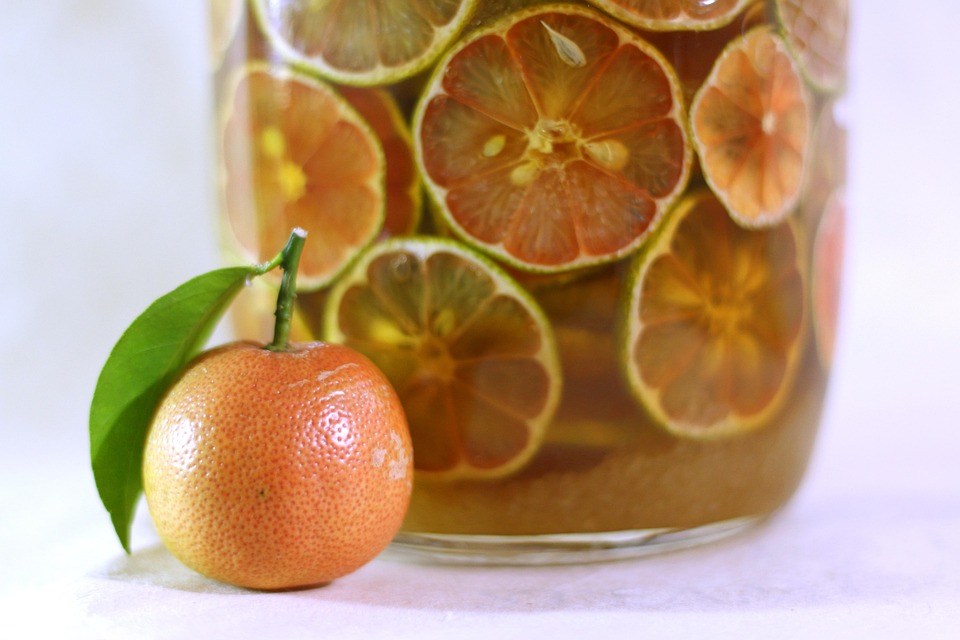Ever noticed how a simple drink of warm lemon water can kickstart your day? The bright, zesty flavor isn’t just refreshing; it might hold some beauty benefits, too. Combining lemon with honey takes this morning ritual to another level, especially when it comes to enhancing skin radiance.
Contents
Why Lemon and Honey?
Lemon is packed with vitamin C and citric acid, which are known for their skin-brightening properties. Honey, on the other hand, is a natural humectant, attracting moisture to the skin. Together, they form a potent duo that can enhance overall skin health. Let’s explore five key benefits of using lemon and honey for face radiance.
1. Natural Brightening Effect
Lemon juice acts as a natural astringent. Rich in vitamin C, it can reduce dark spots and hyperpigmentation, giving skin a more even tone. A study published in the Journal of Cosmetic Dermatology highlights how topical ascorbic acid (vitamin C) can significantly lighten pigmentation over time (Kwon et al., 2018).
By incorporating lemon into your skincare routine, you can harness these properties to brighten your complexion. However, it’s important to note that lemon is acidic and can cause irritation for some. Always perform a patch test before application, especially if you have sensitive skin.
2. Hydration and Moisture Retention
Honey is renowned for its hydrating properties. It acts as a humectant, meaning it attracts moisture from the environment into the skin. A research article in the International Journal of Cosmetic Science indicates that honey can significantly enhance skin hydration when used intermediately (Alvarez-Suarez et al., 2020).
When blended with lemon, honey helps maintain hydration while the ascorbic acid from lemon brightens the skin. This combination not only keeps your skin plump and dewy but can also help combat dry patches, giving your face a radiant glow.
3. Antimicrobial and Anti-Inflammatory Properties
Both lemon and honey possess antimicrobial properties. Honey has been shown to inhibit the growth of certain bacteria, making it beneficial for those prone to acne. A study published in Dermatologic Therapy outlines how honey can help reduce inflammatory lesions in acne patients (Maddocks-Jennings & Hamblin, 2009).
Lemon also has antibacterial properties thanks to its acidic nature. When applied to the skin, it can help cleanse pores, reducing the likelihood of breakouts. However, be cautious; the combination can also lead to photosensitivity. It’s best to use lemon and honey in the evening to prevent sunburn.
4. Exfoliation for a Fresh Look
Regular exfoliation is key to maintaining healthy skin. Lemon can help with this due to its natural alpha hydroxy acid (AHA) content, which aids in exfoliation. A study published in the Journal of Clinical and Aesthetic Dermatology discusses how glycolic acid (derived from AHAs) has effective exfoliation properties, promoting cell turnover (Levy et al., 2011).
When mixed with honey, you can create a gentle scrub that exfoliates without overdrying the skin. The granular texture of honey adds a mechanical exfoliant aspect, removing dead skin cells and revealing radiance beneath.
5. Soothe and Calm Skin
Lemon zest isn’t just for drinks—it can also help calm inflammation. The bioactive compounds in lemon can be soothing, while honey further provides anti-inflammatory effects. A study in Frontiers in Pharmacology suggests that honey can modulate inflammatory responses in the skin, thus fostering healing (Hollands et al., 2013).
This calming effect can be especially beneficial after a long day or during colder months when skin tends to feel irritated. Applying a lemon and honey mask can offer relief and revitalization, allowing your natural beauty to shine.
Limitations and Considerations
While the benefits of lemon and honey for skincare are substantial, it’s essential to approach them with caution:
- Sensitivity: Both lemon and honey can cause allergic reactions in some individuals. Always patch test before applying to your face.
- Sun Sensitivity: Lemon can increase photosensitivity, making your skin more susceptible to sun damage. Limit sun exposure after application or use in the evening.
- Consistency: Expecting immediate results can lead to disappointment. Consistent use over time is key for best results.
Frequently Asked Questions
1. How often should I use lemon and honey on my face?
Using a lemon and honey mask 1-2 times a week is recommended. Overuse may lead to irritation.
2. Can I use lemon and honey if I have sensitive skin?
If you have sensitive skin, proceed with caution. Start with diluted formulations and perform a patch test to assess reactions.
3. Does this combination work for oily skin?
Yes, the astringent properties of lemon help reduce oiliness, while honey helps hydrate without clogging pores.
4. How long does it take to see results?
Results can vary but typically appear within a few weeks of consistent use. Patience is key.
Conclusion: A Simple Radiance Ritual
Incorporating lemon and honey into your skincare routine can lead to several benefits, from brighter skin to increased hydration. By understanding their properties, respecting their potential pitfalls, and applying them thoughtfully, you can elevate your skincare game naturally.
Life can be busy, but taking just a moment for self-care with these two ingredients can refresh your face and spirit. Why not give it a try? Your skin might just thank you for it.
References
- Kwon, H. H., et al. (2018). Effects of vitamin C on skin pigmentation: A systematic review. Journal of Cosmetic Dermatology. URL: https://www.ncbi.nlm.nih.gov/pmc/articles/PMC5815499/
- Alvarez-Suarez, J. M., et al. (2020). Honey and skin health: A focus on its bioactive properties. International Journal of Cosmetic Science. URL: https://onlinelibrary.wiley.com/doi/abs/10.1111/ics.12647
- Maddocks-Jennings, W., & Hamblin, M. R. (2009). Honey as a topical treatment for wounds: A systematic review. Dermatologic Therapy. URL: https://onlinelibrary.wiley.com/doi/full/10.1111/j.1529-8019.2009.01231.x
- Levy, L. L., et al. (2011). Efficacy of glycolic acid in the treatment of photoaging. Journal of Clinical and Aesthetic Dermatology. URL: https://www.ncbi.nlm.nih.gov/pmc/articles/PMC3060848/
- Hollands, W. J., et al. (2013). Honey and its potential role in skin repair: An overview. Frontiers in Pharmacology. URL: https://www.frontiersin.org/articles/10.3389/fphar.2013.00066/full
Get Your FREE Natural Health Guide!
Subscribe now and receive our exclusive ebook packed with natural health tips, practical wellness advice, and easy lifestyle changes, delivered straight to your inbox.




